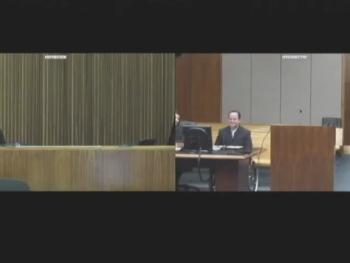Case Summary: 11-cv-03209
This is a case about whether a university that provides housing for students must accommodate a student with depression and anxiety by allowing her to have her dog live with her to calm her down.
At issue is the Federal Housing Act (“FHA”), 42 USC § 3601 et seq, which generally makes it unlawful to deny a “dwelling” to a person based on the person’s handicap. The United States is suing on behalf of Brittany Hamilton (“Hamilton”), the student with the alleged handicap. Defendants are the University and personnel involved in the denial of Hamilton’s request to have her dog live with her (“UNK”). Ms. Hamilton alleges that she needed to have her dog with her because when she has an anxiety attack, the dog is trained to place his front paws on her shoulders, which helps her concentrate and distracts her from the anxiety. Without her dog Hamilton was, allegedly, forced to withdraw from UNK.
The video is of a hearing on the parties’ cross motions for partial summary judgment on the issue of whether university housing constitutes a “dwelling” under the FHA. This issue has never been determined by a court and is particularly important, at least according to Defendants, because, should university housing constitute a “dwelling,” virtually “every college and university in the country would be subject to FHA litigation, as single-sex rooms and bathrooms, non-coed housing, fraternity and sorority houses, and housing that segregates students by familial status would all violate the FHA.”
The Court ruled that university housing is a dwelling within the meaning of the FHA.
Case Highlights
Case highlights for this case are not yet available.
Case-related documents, including those referenced above, are available via the Public Access to Court Electronic Records (PACER) service. For more information, visit Pacer.gov.

